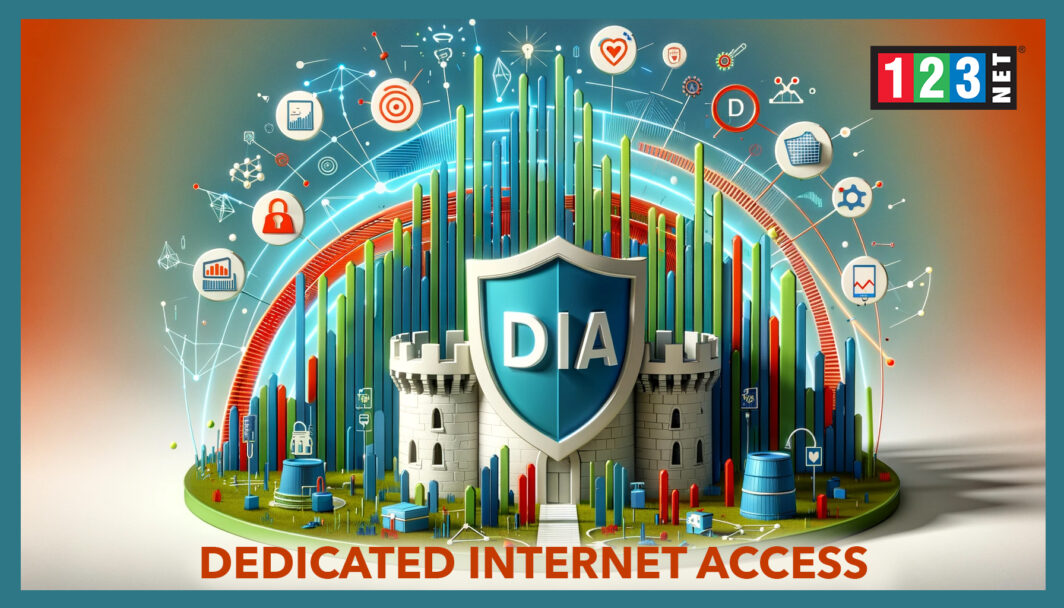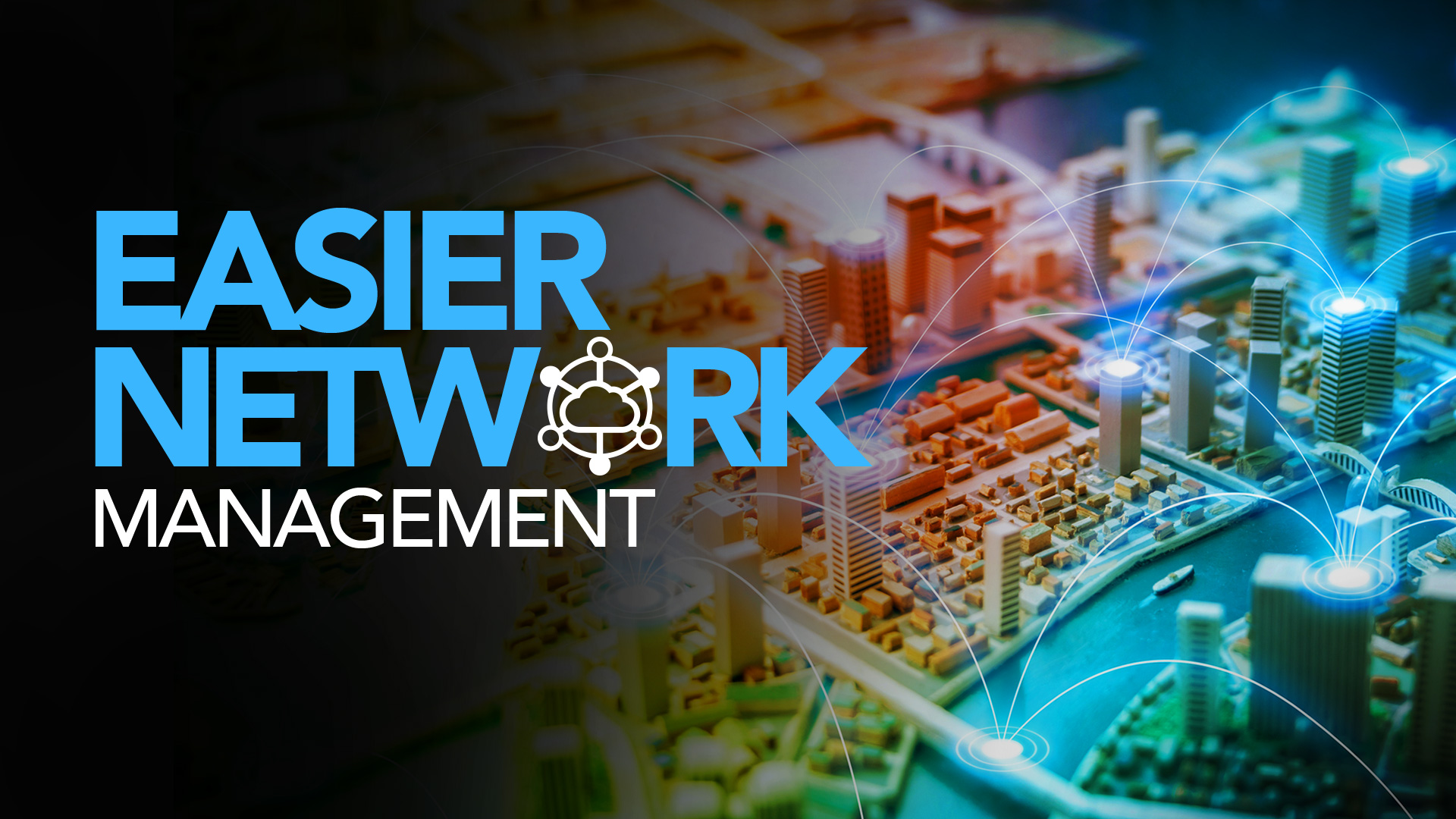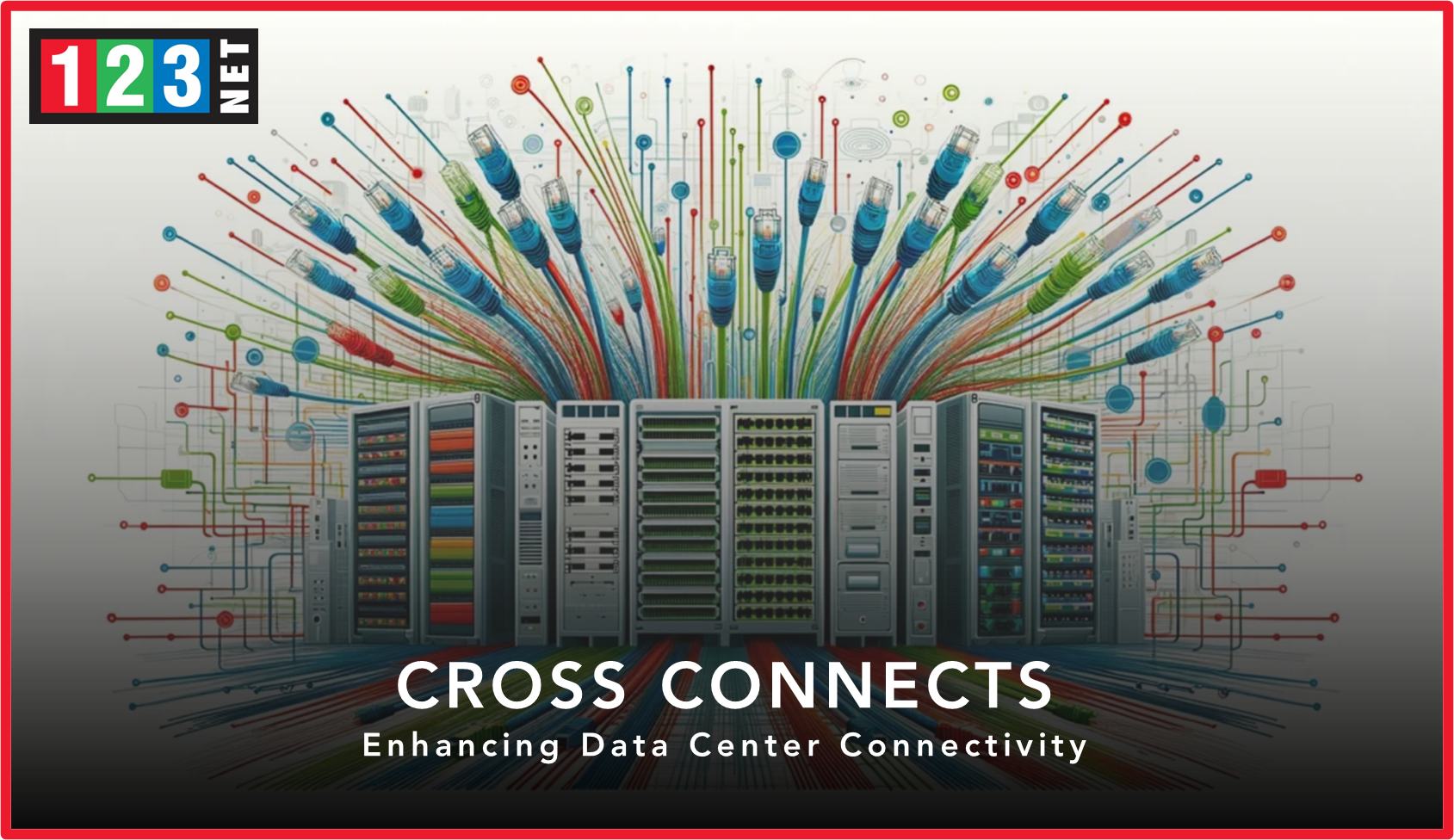
Introduction
In today’s digital era, internet connectivity is crucial for business operations. The selection of an internet service is a vital decision for companies. Dedicated Internet Access (DIA) emerges as a top-tier option. It provides unparalleled reliability and performance against shared internet services. This guide examines the intricacies of DIA. It highlights its advantages, cost, and important factors for consideration. Our aim is to aid businesses in making a well-informed choice. DIA ensures a private connection, directly affecting operational efficiency. By choosing DIA, businesses can expect consistent internet speeds. This is essential for handling high-volume transactions and data-intensive applications. Furthermore, DIA offers more robust security features, protecting against cyber threats. It is scalable, allowing companies to adjust bandwidth based on their needs. However, the premium nature of DIA means it comes at a higher cost. Companies must weigh this against the potential benefits to operations. Understanding the contract terms and service level agreements (SLAs) is crucial. This ensures expectations are met. Ultimately, investing in DIA can be a strategic move for businesses seeking reliability and growth.
What is Dedicated Internet Access (DIA)?
Dedicated Internet Access (DIA) offers a private internet connection exclusively for a single entity, eliminating bandwidth sharing. This contrasts with standard broadband, where bandwidth is shared among multiple subscribers. DIA guarantees bandwidth and provides symmetric upload and download speeds. These features ensure consistent performance, even during peak internet usage hours. The service is delivered through various mediums to meet diverse business needs. These mediums include dedicated fiber, Ethernet over fiber, Fast Ethernet, and Ethernet over copper. Additionally, T-1 and T-3 lines are options for different infrastructure requirements.
DIA’s reliability and the commitment to Service Level Agreements (SLAs) by ISPs are central to its value. SLAs detail key performance metrics, including network uptime, latency, packet loss, and jitter. Businesses benefit from guaranteed service quality and have recourse in case of disruptions. This makes DIA a preferred choice for enterprises requiring stable internet connections for critical operations.
Moreover, DIA offers scalability, allowing businesses to adjust bandwidth as their needs evolve. This flexibility supports growth and accommodates fluctuating demand. Enhanced security is another advantage, as DIA reduces exposure to cyber threats compared to shared connections. Businesses can also expect prioritized customer support, ensuring quick resolution of issues.
The investment in DIA is justified by its impact on operational efficiency and the potential for improved productivity. While the cost may be higher than standard broadband, the benefits of DIA often outweigh these expenses. Companies considering DIA should assess their internet usage patterns, performance requirements, and budget. Understanding the terms of SLAs and the technical specifications of the service is crucial. Ultimately, DIA can be a strategic asset for businesses prioritizing reliability, security, and performance in their internet service.
The Importance of DIA for Businesses
DIA is vital for businesses needing continuous internet access. It offers symmetric speeds for efficient data handling. This is essential for VoIP, UCaaS, and large file transfers. The SLAs guarantee reliability and uptime, boosting productivity and customer satisfaction. With DIA, businesses avoid speed drops during peak hours, unlike shared internet. This consistent performance supports data-heavy operations. It can provide a competitive edge in the fast-paced business world.
Furthermore, DIA’s dedicated bandwidth ensures stable internet access. This stability is critical for online meetings and cloud services. It allows for smoother operations and better use of digital tools. DIA also offers enhanced security, reducing the risk of cyber attacks. This is important for protecting sensitive business data. Companies can customize their DIA service to meet specific needs. This flexibility helps in scaling operations and managing costs effectively. Choosing DIA can lead to improved efficiency and a stronger market position. It’s a strategic investment for businesses prioritizing reliable and secure internet access.

How DIA Pricing Works
Pricing for DIA services varies based on bandwidth, contract duration, and network location. Bandwidth, or data transmission volume, significantly impacts cost. Higher bandwidth supports more robust internet usage but at a higher price. Businesses can opt for fixed bandwidth for consistent capacity. Alternatively, burstable bandwidth offers flexibility for peak demand, with specific pricing for excess usage.
On-net Connections
On-net connections, with existing ISP infrastructure, tend to be less expensive. Off-net connections, needing extra installation, incur higher costs. Contract length influences pricing, with longer terms generally offering lower monthly rates. This is due to the spread of initial costs over time.
Location
Additionally, the geographic location of a business can affect DIA pricing. Areas with dense ISP infrastructure may enjoy lower prices due to competition. In contrast, remote locations might face higher charges due to the lack of infrastructure. The service level included in the contract also plays a role. Higher service levels, offering greater uptime and faster repair times, usually command a premium.
Additional Fees
Businesses should also consider additional fees, such as installation or equipment costs. These can significantly impact the overall expense of DIA services. Negotiating with providers can sometimes reduce these costs or spread them out over the contract term. Understanding the billing method for burstable bandwidth is crucial. Some ISPs bill based on the 95th percentile, allowing businesses to exceed their base capacity without incurring high costs for occasional spikes.
Budget
Choosing the right DIA service requires balancing needs and budget. Businesses should assess their internet usage patterns and growth prospects before deciding. Consulting with IT professionals or telecom consultants can provide valuable insights. They can help businesses navigate the complex pricing structures of DIA services.
In summary, DIA pricing is multifaceted, influenced by bandwidth, connection type, contract length, and additional factors. Companies must carefully evaluate their requirements and negotiate terms that align with their operational needs and financial constraints. Investing in the appropriate DIA service can enhance operational efficiency, support digital transformation, and provide a competitive edge in the digital economy.
DIA vs. Best Effort Internet Connections
The main distinction between DIA and best effort internet services is bandwidth allocation. Best effort services, common in residential settings, do not assure specific bandwidth. This results in fluctuating speeds, particularly when demand is high. Conversely, DIA provides businesses with guaranteed bandwidth, ensuring steady performance.
Best effort internet often features asymmetrical speeds, with faster downloads than uploads. This can impede businesses requiring significant uploads or extensive cloud service use. DIA offers symmetric speeds, removing this obstacle and enabling effective communication and data exchange.
Moreover, DIA provides more reliable connectivity, crucial for operations relying heavily on internet access. This reliability supports critical business applications, enhancing overall efficiency. In contrast, the variability in best effort services can lead to disruptions, affecting productivity. DIA’s dedicated nature also means enhanced security, a vital aspect for protecting sensitive data.
Businesses considering DIA should weigh the benefits of consistent and secure internet against the cost. While DIA comes at a premium, the investment can be justified by the operational advantages it offers. Ultimately, the choice between DIA and best effort services hinges on the specific needs and priorities of the business. Selecting DIA can be a strategic decision for those prioritizing uninterrupted service and robust internet capabilities.
Technical Considerations for DIA
When selecting DIA, businesses need to evaluate their bandwidth and speed needs, keeping in mind both present requirements and anticipated growth. The decision between fixed and burstable bandwidth hinges on internet usage predictability and the company’s ability to manage fluctuating expenses.
Latency, or the delay before data transfer begins, is crucial, especially for real-time applications such as VoIP and video conferencing. These applications demand low latency to maintain high-quality communication.
The network infrastructure is pivotal in DIA services. The connection type, whether it’s dedicated fiber or Ethernet over copper, influences both performance and reliability. Ensuring compatibility between the business’s infrastructure and the chosen DIA service is vital for reaping maximum benefits.
Furthermore, redundancy is a significant factor for some organizations. They may choose multiple DIA connections to guarantee uninterrupted internet access in case of a service disruption. This strategy provides an extra layer of reliability, essential for businesses where any downtime is unacceptable.
Security features associated with DIA also warrant attention. Enhanced security measures can protect sensitive data more effectively than best effort services. Businesses should inquire about the security protocols offered by their DIA provider.
Cost considerations are inevitable, as DIA typically comes at a premium compared to shared internet services. However, the investment can be justified by the superior speed, reliability, and security it offers. Companies should carefully weigh these benefits against the potential costs.
In summary, choosing DIA involves assessing a range of factors from bandwidth and latency to infrastructure compatibility and redundancy. A thoughtful evaluation can help businesses make an informed decision, ensuring their internet service aligns with operational needs and strategic goals. DIA can be a valuable asset for companies prioritizing reliable, high-performance internet access.
Choosing the Right DIA Provider
Choosing a DIA provider requires careful assessment of their network coverage, SLA guarantees, customer support, and pricing. Providers with a strong on-net presence in the business’s area can offer cost and time savings. The SLA is crucial, detailing service quality expectations and compensation for failures. Reliable customer support is essential for addressing problems swiftly. Transparent pricing, with all possible extra costs explained, is also key.
Moreover, checking for the provider’s reputation and experience in delivering DIA services is important. Reviews and testimonials can offer insights into their reliability and customer satisfaction levels. Additionally, understanding the technical capabilities, such as the types of connections offered and scalability options, can ensure the service meets future growth needs.
Businesses should also consider the ease of managing the service. Providers offering user-friendly management tools for monitoring and adjusting services can enhance operational efficiency. Negotiating contract terms to align with business needs and flexibility can lead to more favorable agreements.
In essence, selecting the right DIA provider involves more than just comparing costs. It’s about ensuring a match between the provider’s offerings and the business’s specific requirements, aimed at securing reliable, high-quality internet service.

FAQs Section
- What is the difference between DIA and broadband? A: DIA offers dedicated bandwidth with symmetric upload and download speeds, unlike broadband which is a shared service with variable speeds and often asymmetric bandwidth.
- How does DIA pricing vary by location? A: Pricing can vary significantly based on whether the service is on-net or off-net, with on-net locations generally offering lower prices due to existing infrastructure.
- Can small businesses benefit from DIA? A: Yes, small businesses, especially those relying on cloud services, VoIP, or have high data transfer needs, can benefit significantly from the reliability and consistent performance of DIA.
Conclusion
Dedicated Internet Access is a critical service for businesses requiring reliable, high-performance internet connectivity. By understanding the factors that influence DIA services, such as bandwidth, SLAs, and technical considerations, businesses can make informed decisions that align with their operational needs and budget constraints. Choosing the right DIA provider is crucial to leveraging the full benefits of dedicated internet access, ensuring uninterrupted productivity and competitive advantage in the digital marketplace.




